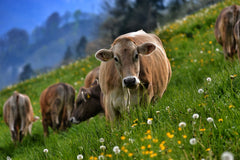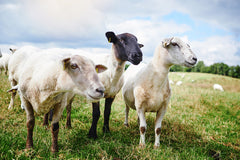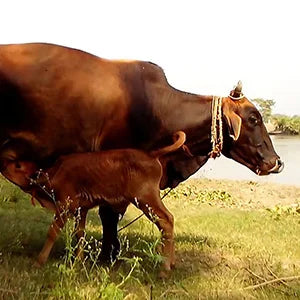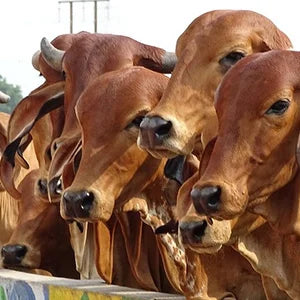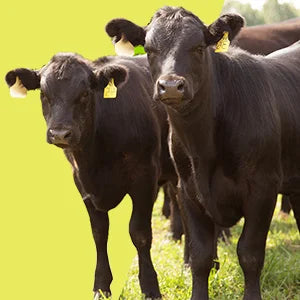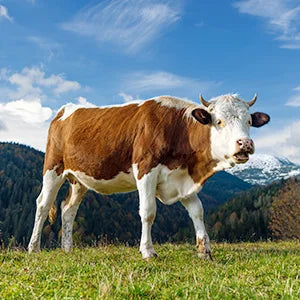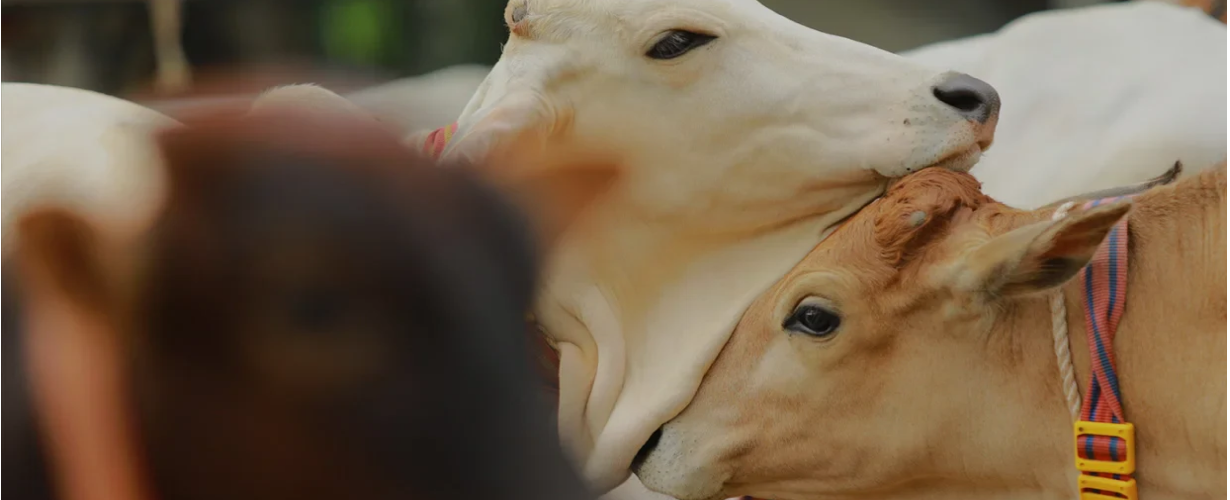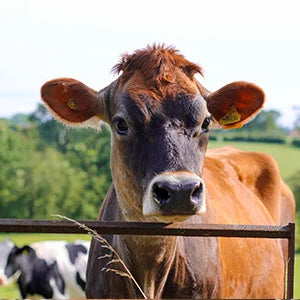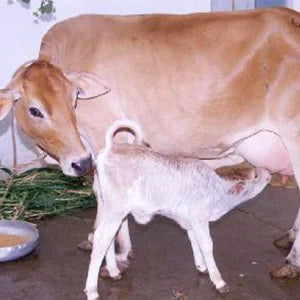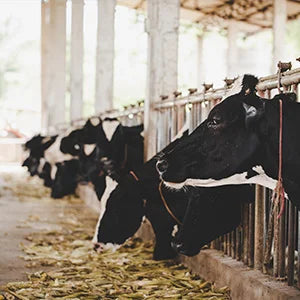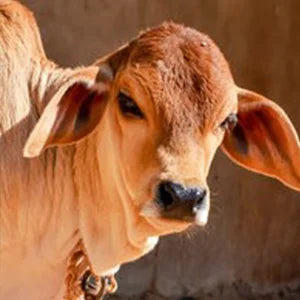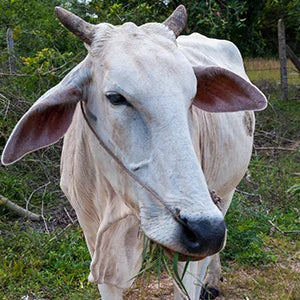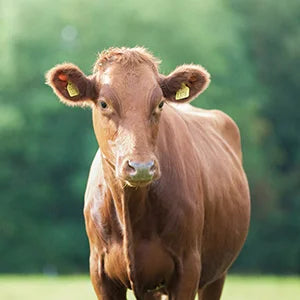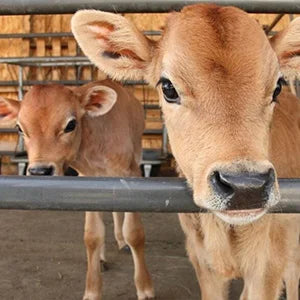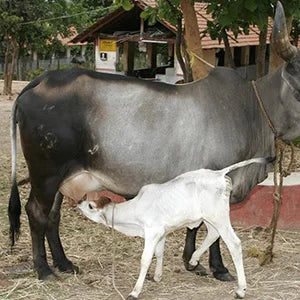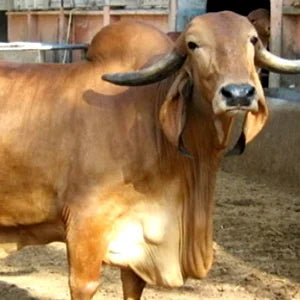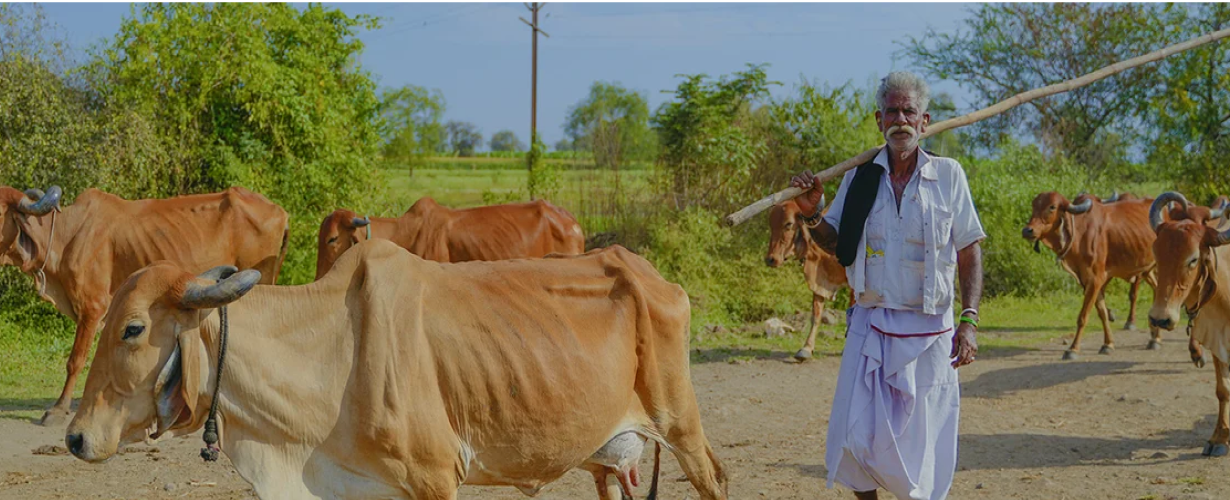Mastitis in cattle is an udder inflammation often caused by bacterial infection. It leads to reduced milk quality and quantity. Prevention includes good hygiene, proper milking practices, and prompt treatment with antibiotics. Chronic cases may require veterinary attention.
Common causes of Mastitis in Cattle include:
-
Swelling and Heat
Affected quarters of the udder may become swollen, hot, and tender to the touch. This swelling is often visible and can cause discomfort for the cow.
-
Changes in Milk
Abnormalities in the milk are a key indicator. This can include clots, discoloration (such as a more yellow or bloody appearance), and a decrease in milk production from the affected quarter.
-
Pain and Discomfort
Cows with mastitis often exhibit signs of pain and discomfort. They may be reluctant to be milked, show signs of agitation during milking, or exhibit behavioral changes, such as reduced feed intake.
-
Systemic Signs
In severe cases, systemic signs of illness may be present in affected cows. These can include lethargy, a drop in overall milk production, fever, and changes in appetite.
Tips for Prevention of Mastitis Problem in Cattle
Prevent mastitis in cattle with clean bedding, proper milking, and regular udder cleaning. Cull infected cows, ensure a balanced diet, and vaccinate. Quarantine new additions, manage the environment, and use post-milking teat disinfectants. Early detection and veterinary care are vital for a holistic approach to mastitis prevention.
Symptoms of Mastitis in Cattle
-
Bacterial Infections
Staphylococcus aureus, E. coli, and Streptococcus agalactiae are common culprits.
-
Swelling in tits
The affected quarter of the udder may become swollen and firm.
-
Heat
The infected area is often warmer than the surrounding tissue.
-
Pain
Cows with mastitis may exhibit signs of discomfort, and the udder may be sensitive to touch.
-
Changes in Milk
Milk from the affected quarter may contain clots, pus, or have an abnormal color, smell, or consistency.
-
Reduced Milk Production
Mastitis often leads to a decrease in milk yield.
-
Redness
The udder may appear red or discolored.
-
Reluctance to be Milked
Cows may show resistance or pain during the milking process.
-
General Behavioral Changes
Mastitic cows may exhibit signs of illness such as lethargy or a decrease in appetite.
Trusted by Veterinarians
“As a veterinarian, I am thrilled to endorse Dr. Goel Vet Pharma’s homeopathic products for our furry friends. Their commitment to advancing homeopathic veterinary medicine is evident in the exceptional quality of their products. The innovative solutions they provide have significantly enhanced our ability to care for our animal patients, ensuring optimal health outcomes. I highly recommend Dr. Goel Vet Pharma’s products to pet parents for their unwavering dedication to the well-being of pet animals and the invaluable support they offer to the veterinary community.”
– Dr. Sakshi Sharma (B.V.sc. & A.H. M.V.Sc , NET)
Treat your Cattle from Mastitis problems with Dr.Goel’s Teatasule Kit
TEATASULE MASTITIS KIT is the best Homeopathic Veterinary Medicine for female animals showing signs of acute, sub-acute, and clinical mastitis. TEATASULE MASTITIS KIT is very effective in case of pinkish discoloration of milk, blood clots in the milk, curdling of fresh milk, watery milk, udder hard as stone, funnel-shaped teats in cow and buffalo.




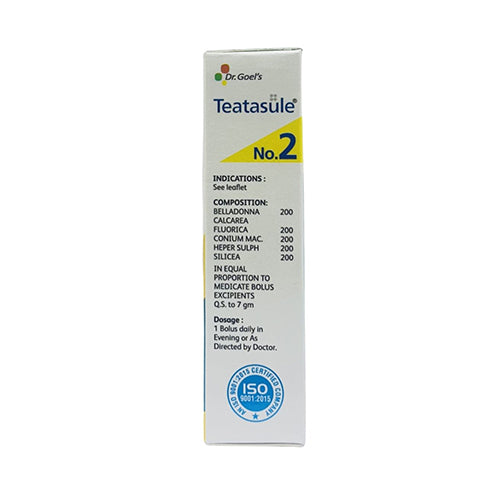
Treat your Cattle from Mastitis problem with Dr.Goel’s Teatasule Spray Kit
TEATASULE MASTITIS KIT is the best Homeopathic Veterinary Medicine for female animals showing signs of acute, sub-acute, and clinical mastitis. TEATASULE MASTITIS Spray kit is very effective in case of pinkish discoloration of milk, blood clots in the milk, curdling of fresh milk, watery milk, udder hard as stone, funnel-shaped teats in cow and buffalo.








